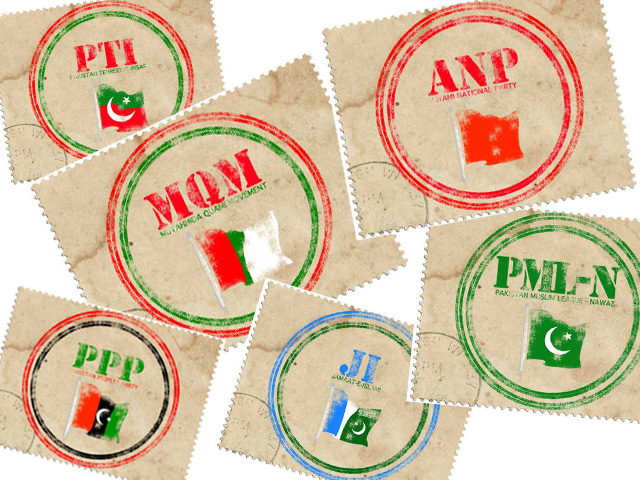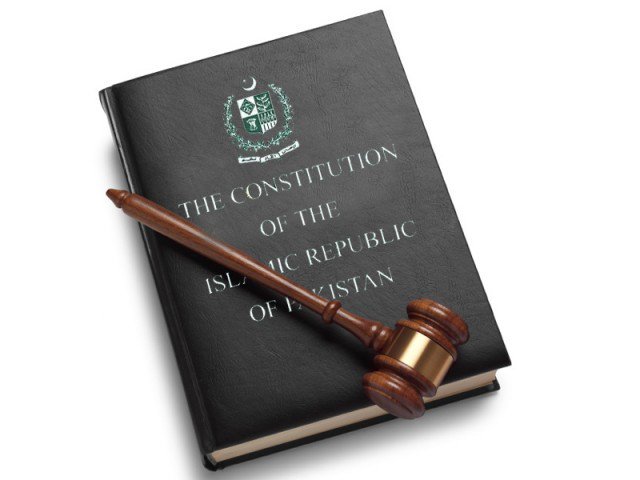Which form of government that fits the current situation of Pakistan?
Pakistan has a unique constitutional experience as it has witnessed frequent shifting of forms of
government from the Constitution of 1956 to the Constitution of 1973. Therefore, Pakistan has kept on oscillating between presidential and parliamentary forms of government. The result has been instability and unpredictability in the relationship between democratic institutions and powerful civil-military bureaucracy. Very often, politicians and dictators use constitutions were used as an instrument to achieve personal interests and amend them according to their short-term objectives. Judiciary, more often than not, did not help in restraining the authoritarian rulers. Judges are said to be the guardian of the constitution, but unfortunately, in Pakistan, the judiciary never plays their role as custodians of the fundamental law of the land.
There was a shift of forms of government from the Constitution of 1956 to the Constitution of 1973
The first Constitution of 1956 adopted a parliamentary form of government. But due to some technical flaws and lack of leadership, it led to its failure. The constitution of 1962 conceptualized a presidential form of government but its dictatorial nature shattered the democracy in Pakistan. The basic principles regarding the adopted form if the government was not given enough weight in both cases. For example, in 1956, Governor-General was given more powers as compared to the Prime Minister, which did not suit the spirit of the parliamentary democracy. In 1962, no system of checks and balances was introduced which is the main characteristic of the presidential system. In comparison, the constitution of 1973 was a democratic one. The parliamentary form of government was adopted.
The statement of this article is to analyze the features of such forms of government and state
your point of view that which form you think best fits the current situation of Pakistan.
First of all, it is important to remember that parliamentary and presidential systems are two
entirely different concepts, so,
I will brief both forms of government, so in the end, one can analyze the suitable system for Pakistan
1. Nature of Government
In presidential form, there is an administration instead of the government, working under the doctrine of Separation of Powers, which says that the judiciary and the lawmaking body are separate organs of state. While, in a parliamentary system, there are three organs of government, the executive, the legislature and the judiciary. What I observe is that,theoretically, there is a doctrine of separation of power and all three organs work separately, but practically, most of the time, these institutions intervene in each other and have outreached their boundaries.
2. Political Parties

There is no concept of ruling party or opposition in the presidential form of government. There are only two prime democratic parties. and the president is free from any party collaboration. On the other hand, there is a multi-party system in the parliamentary form and the element of party affiliation remains in the executive and it cannot be entirely impartial.
3. Heads of the state and government
There is only a one-man i.e; president in the presidential form of government who is authorized to be head of state, and also played his part as head of government and executive. While, in the parliamentary system, two different people hold these two positions. In Pakistan, according to the constitution of 1973, Prime Minister is head of the state, and the president is head of government.
4. Election

In the presidential form of government, people elect and appoint the president through the system of direct elections. The team of president includes federal ministers who are experts in their fields. All technocrats are selected by the president himself. On the contrary, in a parliamentary system, people elect all members of the provincial assembly and national assembly by voting to their respective candidates. These MNAs and senators then chose the prime minister of the country who is also the leader of the parliament, by casting votes. It is a phenomenal hallmark of the parliamentary form that to be the member of the cabinet, it is a prerequisite that one must be the parliamentarian. So, according to me, due to this, the cabinet of prime minister lacks expertise and technocrats.
5. Term of Office
In a presidential form of government, the president is elected for a fixed term and no re-elections occur unless some chaotic situation arises in a country. President can only be removed by the impeachment and it is in so rare situations when he is failed to carry out his responsibilities due to some unfitness or illness. On the other hand, in parliamentary form, the prime minister has to leave his office and resign in the case of a
vote of no confidence from the majority of parliamentarians. The new prime minister is elected through voting by members of the assembly. The courts have the power to disqualify him on some particular offense like corruption charges or contempt of court. Many examples can be seen in the constitutional history of Pakistan including; Imran Ahmed Khan Niazi vs Mian Muhammad Nawaz Sharif (2017) PLD 2017 SC 265 and Suo moto case PLD 2012 SC 553.
6. Source of Powers

Mostly, supremacy belongs to the constitution in the presidential system. All government institutions figure out their jurisdictions from the constitution. While the supremacy belongs to the parliament in a parliamentary system. No court has the jurisdiction to challenge an act of parliament or its authority.
ANALYSIS
The current political situation of Pakistan is better than in previous decades, but it requires a lot of more stability. If I would be the lawmaker of Pakistan and a part of the prestigious parliament, I would recommend a presidential form of government. What I think is that the presidential system is the best way to ensure democracy that works.
I have been observing since the past few years is that politics is just a game of power. Our parliamentary governments have made a parliament whose only target is to acquire self-power. The system has made such broken and immobilized governments who concentrate less on governance and more on power.
After the comparative study of the political system of the United States with Pakistan, I noted that there are many issues in Pakistan prevailing only because of the Parliamentary system, like caste system, feudalism, weak political parties, lesser accountability, etc. What I like most in the presidential form of government is that the powers of MNA’s and MPA’s are limited in it. The parliamentarians just confined to law-making and oversight of national affairs, and they cannot be appointed as ministers. In this way, politicians would miss a chance to do corruption who only enter into politics to steal public money.
Actually, due to Ayub Khan’s regime, there is the wrong perception among the people of Pakistan about the presidential system is that it is equivalent to the monarchy. No! the Presidential government is not the dictatorship.
The best point in my point of view is that a presidential system is justified because of the head
of state and the head of government will be the same person with sole responsibility.
In my opinion, the presidential system lends certainty and stability to the government. A president is elected for a fixed term of office and cannot be removed except for or misconduct through a difficult impeachment procedure. He, thus, has full opportunity to formulate long-term policies and to execute them. He can work single-mindedly for the country without losing any fear of losing the majority in the legislature.
Moreover, the strong principle of separation of powers in the presidential system is the biggest need in Pakistan. I believe that the presidential system promotes strict separation of power
among the three organs of the State and the legislature has the opportunity to focus more on lawmaking.
However, to reach the aim of the transformation of the form of government is not easy, the conspiracy of feudal lords and Pakistani politicians will never allow this to happen. Efforts should be therefore be made to curtail the vices and excess of the presidential system such as an amendment in the constitution. In short, at the end of the day, it’s not about which system is better but which system is better for Pakistan.
